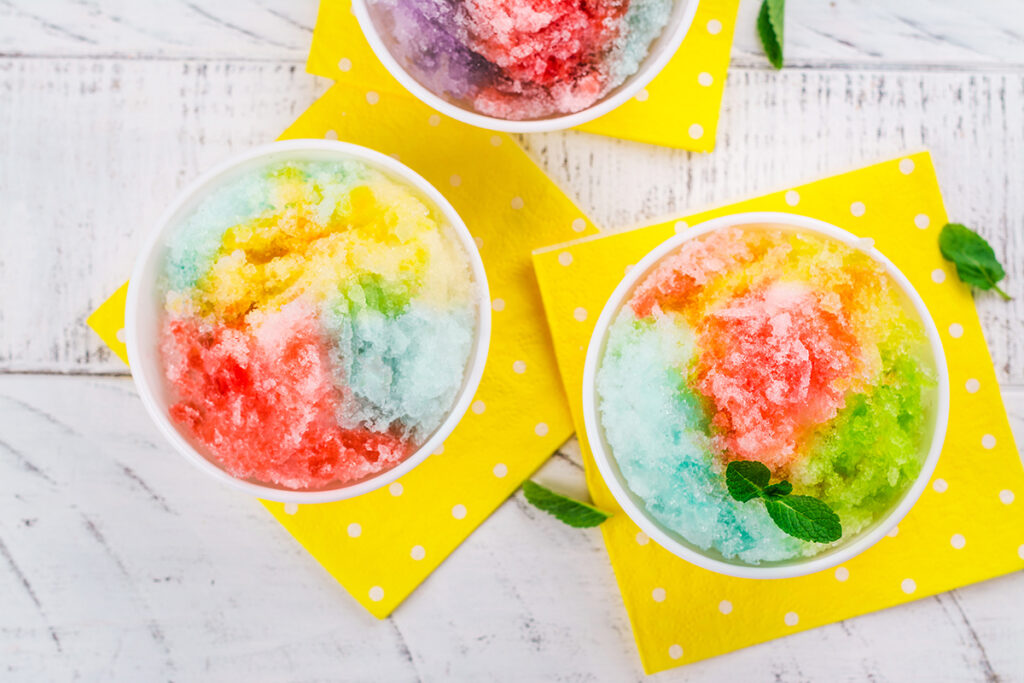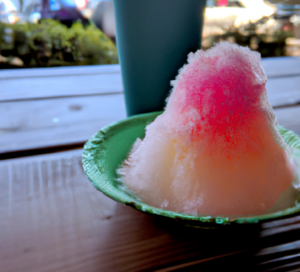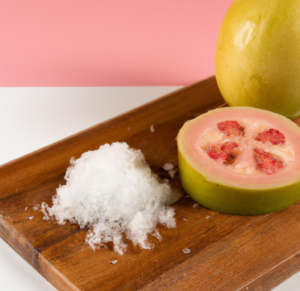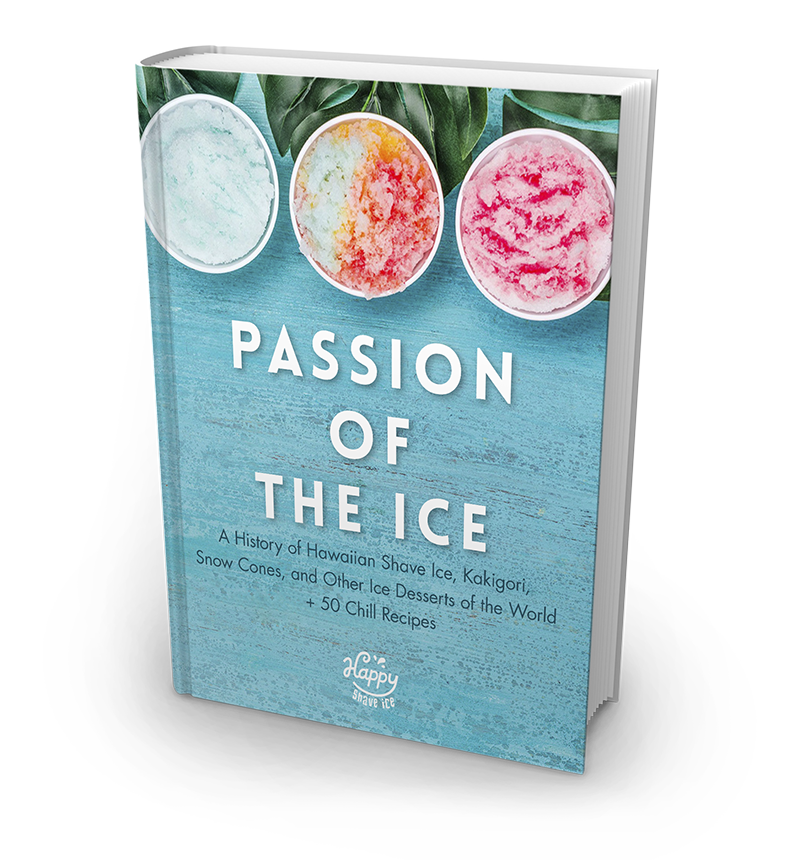Want to make some homemade syrups for shave ice or snow cones but don’t want to use refined sugar? Luckily, there are lots of different alternative sweeteners you can try instead. Each one has it’s on pros and cons, so read on to learn about which ones might work for you.
Sugar Alternatives
Coconut Palm Sugar
Coconut sugar is an excellent sugar alternative. It retains naturally high mineral and vitamin content since it’s minimally processed and made from tapping the stems of the coconut palm then dehydrating the sap at a very low temperature. It has a great toffee-like flavor and color and is considered low GI, so it provides a slow energy release for your body. It’s rich in microelements and amino acids, making it an excellent alternative to cane sugar. It has been reported as the single most sustainable sweetener in the world by The Food and Agriculture Organization of the United Nations.
Coconut Sugar is an ideal substitute for brown sugar. It can also be used instead of agave and honey in recipes, desserts, coffee, and tea.
Stevia Leaf
This a great natural sweetener that doesn’t get as much attention as others, but should. It is merely the leaf of the Stevia plant ground into a powder. Stevia sweetener has a zero glycemic index, no kilojoules, and no carbohydrates. Research is showing that stevia doesn’t affect blood glucose levels or interfere with insulin.
Stevia is a highly concentrated sweetener – 1 cup of sugar is equal to 1 tsp of Organic Stevia Leaf Powder and 1 tsp of sugar equals a pinch of stevia powder so be careful when measuring out your quantity!
Monk Fruit
You can add monk fruit sweetener to foods and beverages pretty much just as you would with refined sugar! It can also be used for all your regular baking and cooking, so it’s a great sugar replacement overall. It’s equally as sweet as sugar, but totally guilt-free!
Xylitol
Xylitol is a natural sweetener produced from hardwood sources. It is a lower kilojoule sugar substitute and also has a low GI (7). It is a good option for those with diabetes, as xylitol is metabolized slowly and doesn’t cause the ‘sugar spike’ leading to a subsequent drop in blood sugar and a craving for more sweets. If you want to prepare your all natural shave ice syrup with xylitol be aware that it will not thicken as the sauce cooks, so you will be left with a watery consistency.
Honey
Honey is a great sugar alternative in baking, sauces, and of course, natural shave ice syrups. Honey is known to be anti-bacterial and anti-inflammatory and has a wide array of vitamins and minerals! The key is to buy raw honey which maintains its health properties in the raw state – being the electrolytes, antioxidants, amino acids, and antimicrobial compounds that have a good influence on your immune system. Generally, go for darker varieties, the darker they are they are richer in bioactive compounds.
Raw Agave Syrup
This delicious syrup is produced from Mexico’s Blue Agave cactus plant. It has been extracted by hand from its pineapple-shaped core, as the flower shoot is cut out and the sap collected. Owing to agave syrup’s popularity is the fact that it has a low GI (30) and is 1.4 times sweeter than other natural sweeteners. Raw food enthusiasts love it as well because it’s not heat treated above 45 degrees during processing!
Although it is a great substitute for sugar, Agave Syrup is sweeter than sugar and doesn’t follow the 1:1 ratio so you will need to do a taste test during your cooking!
Coconut Syrup
Extracted from the sap of the coconut blossom, coconut syrup uses the ‘tapping’ process for the sap. Once collected into clay pots, the sweet sap is then heated and evaporated to form this rich coconut nectar. It has a deliciously sweet caramel flavor and goes well with pancakes, toasted cereals, hot beverages, smoothies, and all of your favorite dessert recipes! As a sugar substitute, it is slightly sweeter than sugar and can be used 1:1.
Maple Syrup
Pure maple syrup is very versatile. It’s primarily used as a classic pancake topping and is made from the sap of the maple tree, which is boiled to evaporate the water and produce a syrup with the characteristic flavor and color. It contains less fructose than other sweeteners like agave, and more calcium, iron, zinc, manganese, and potassium than honey.
Molasses
Blackstrap molasses is a thick, dark, strong flavored syrup made from the extraction process of sugar cane juice. It has a rich, full-boiled, robust flavor which gives natural caramel color when baking. Unlike processed sugar, molasses is very rich in inositol, copper, B vitamins, phosphorus, calcium, iron, and potassium. The darker the color, the richer the nutrients! Blackstrap Molasses is popular in baking biscuits, bread, in sauces, marinades, as a flavor enhancer and of course, you can use it in your natural snow cone syrup recipes. If you’re substituting this for a recipe that calls for sugar, remember you will be adding liquid so you may need to remove a little liquid elsewhere.
Rapadura Sugar (AKA Cane Sugar)
If you just can’t resist normal sugar, Rapadura is the best choice as it is simply dehydrated sugar cane juice, i.e. obtained by evaporating the water from the sugar cane juice. It has high nutritional value and it retains most of the natural micronutrients. It has a unique fine grain, caramel flavor, and golden color. Rapadura Sugar can serve as a substitute for other granulated sugar and will not alter the texture of your food when used instead of processed sugar.
Erythritol
Although it sounds a little scary, erythritol is just a type of carbohydrate called a sugar alcohol. It’s often used as a sugar substitute and can be found naturally in some foods. It’s actually what makes things like wine, beer, and cheese ferment. Erythritol sweetener has zero calories and tastes and bakes just like regular sugar. You can easily substitute erythritol at a 1:1 ratio in all recipes that call for sugar.
Unlike stevia and monk fruit, which can sometimes have a slightly bitter aftertaste, there is no bitter aftertaste associated with erythritol.




